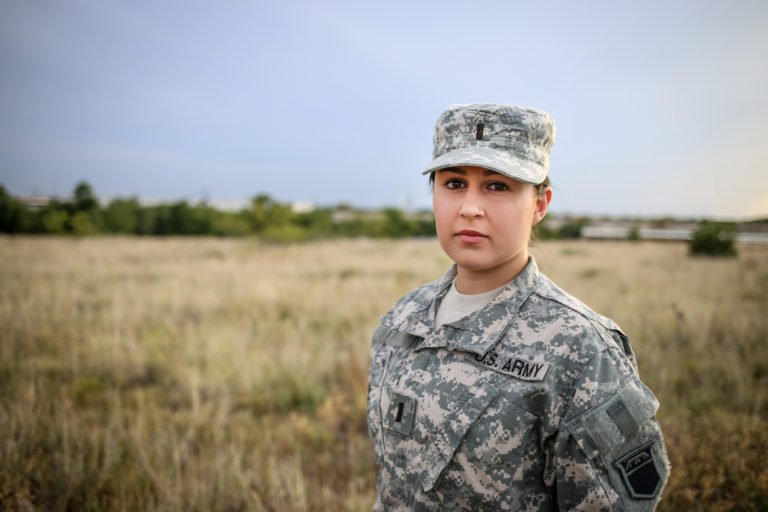VA Benefits for Female Veterans

Female Veterans Demographics
Women comprise approximately 14.5 percent of the active duty military force and almost 18 percent of National Guard and Reserves. As the number of women in the military increases, so does the number of female veterans. Specifically, women make up the fastest growing population of veterans in the United States, totaling approximately 2 million as of 2017. As a result, more women veterans are now seeking supportive services from VA. This growth is highlighted in VA’s 2015 Women Veterans Report:
- In 2015, 840,000 women veterans used at least one VA benefit or service (an increase from 31.2% of women veterans in 2005 to 41.1% in 2015)
- From 2005 to 2015, the number of women veterans enrolled in VA healthcare increased 83.9% from 397,024 to 729,989
- From 2005 to 2015, the number of women veterans using VA healthcare increased 46.4% from 237,952 to 455,875
- 1% of all women veterans in 2005 used VA health care compared with 22.4% of all women veterans in 2015
- In 2015, 405,418 women veterans received compensation from VA for a service-connected disability, representing about 20.1% of the total population of women veterans
- 54% of women veterans receiving compensation had a combined disability rating of 50% or higher
VA is committed to ensuring that benefits and services for women veterans are made as accessible as possible. Accordingly, VA has created a number of outreach programs and revised guidelines towards this objective.
Most Common Disabilities Among Female Veterans as of 2015
According to VA’s 2015 Women Veterans Report, women veterans most often face the following service-connected disabilities.
- Post-Traumatic Stress Disorder accounts for 12% of all service-connected disabilities among women veterans, totaling about 48,000 women.
- Major Depressive Disorder. Approximately 26,500 female veterans were service-connected for major depressive disorder.
- Over 24,000 women veterans received disability compensation for migraine headaches.
- Back Pain (Lumbosacral or cervical strain). Roughly 22,200 women veterans were service-connected for lumbosacral or cervical strain.
- Uterus and Ovaries, Removal of, Complete. About 12,700 women veterans had the complete removal of their ovaries and uterus. An additional 10,500 women had this same procedure, however, required the removal of the corpus as well. This totals over 23,000 female veterans in 2015.
VA Expands Rating Schedule to Include Women-Specific Conditions
On May 13, 2018, VA’s updated Rating Schedule (VASRD) went into effect. This updated rating schedule includes gynecological conditions and disorders of the breast – conditions that were previously rated by analogy (i.e., there were no specific diagnostic codes or rating criteria for those conditions). This change allows women veterans to be rated more accurately and equally to men.
Healthcare Services at VA for Female Veterans
VA offers a variety of healthcare services to women veterans based on their specific needs. Types of healthcare include access to primary care, mental health care, and specialty care (see below for specific services provided).
Primary Care and Mental Health Care
- Health evaluations and counseling
- Mental health evaluation and assistance for:
- Depression, mood, and anxiety disorders
- Domestic violence
- Sexual trauma
- Elder abuse or neglect
- Parenting
- Anger management
- Marital, caregiver, or family-related stress
- Post-traumatic stress disorder (PTSD) and post-deployment adjustment
- Military sexual trauma (MST) counseling and treatment
- Disease prevention
- Nutrition counseling
- Weight control
- Smoking cessation
- Substance misuse counseling
- Cervical cancer screenings (pap smears)
- Breast cancer screenings (mammograms)
- Birth control
- Preconception counseling
- Human Papillomavirus (HPV) vaccine
- Menopausal support (hormone replacement therapy)
Specialty Care
- Management and screening of chronic conditions such as:
- Heart disease
- Diabetes
- Cancer
- Osteoporosis
- Fibromyalgia
- Sexually transmitted diseases
- Reproductive care such as:
- Maternity care and 7 days of newborn care
- Infertility evaluation and limited treatment
- Sexual dysfunction
- Tubal ligation
- Urinary incontinence
- Rehabilitation, at-home, and long-term care including:
- Physical therapy
- Speech therapy
- Occupational therapy
- Recreational therapy
- Exercise therapy
- Vocational therapy
Center for Female Veterans
The Center for Women Veterans was created to monitor and coordinate VA’s administration of benefits services and programs for female veterans. Specifically, it advocates for a cultural transformation that recognizes the service and contributions of women veterans and women in the military, and also raises awareness of the responsibility to treat female veterans with dignity and respect.
Women Veteran Coordinators
Women Veteran Coordinators are located in every Regional Office and function as the primary contact for female veterans. They provide specific information and comprehensive assistance to women veterans, their dependents, and beneficiaries concerning VA benefits and other related non-VA benefits. These individuals may also assist women veterans in the intake, development, and processing of military sexual and personal trauma claims.
Military Sexual Trauma (MST) Coordinator
Every VA facility has a designated MST Coordinator who serves as a contact person for MST-related issues. The MST Coordinator works as an advocate and can help female veterans find and access VA services and programs, state and federal benefits, and community resources.
Women Veterans Hotline
While the number of women veterans enrolled in VA programs and services is steadily increasing, research still indicates that female veterans underutilize VA care and benefits, largely due to a lack of knowledge about VA benefits and available services. To address this, VA created the Women Veterans Hotline – 1-855-VA-WOMEN (829-6636) to receive and respond to questions from women veterans, their families, and caregivers across the nation.
About the Author
Share this Post
